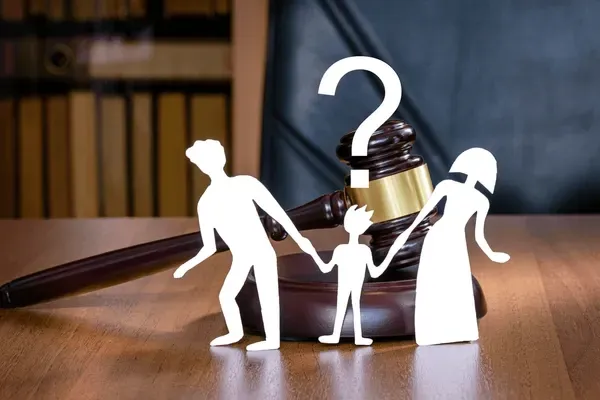Insurance Coverage for Former Spouses
A Quick Guide on Insurance Coverage During Divorce

It's not uncommon for people, especially women, to remain without healthcare coverage after a divorce.
The University of Michigan conducted research in 2012 and discovered that around 115,000 women are left without private healthcare insurance because of divorce each year. Moreover, 65,000 women remain uninsured for months or years on end. Also, six months following a divorce, one-quarter of women who previously relied on their partners' policies usually still don't have any coverage.
Another shocking fact is that even women who, thanks to their jobs, have their own healthcare insurance might not be able to afford it any longer upon divorce. Statistics show that 11% of women in such situations lose their coverage.
This University of Michigan research looked at women aged 26 to 64 who went through a divorce between 1996 and 2007. It was discovered that women aged 50 to 64 and moderate-income women are most vulnerable to losing their healthcare coverage.
The research didn't analyze the way divorce affects men's healthcare coverage. Still, the author said that men are less likely to use wives' insurance policies. That’s why they also generally suffer fewer negative economic consequences in case of a divorce.
That being said, several factors will decide whether an ex-spouse will have health insurance post-divorce. Some of them include state and federal law, as well as parties' final agreement.
Insurance Coverage for Ex-Spouses
Numerous firms offer healthcare coverage to spouses. However, coverage for ex-spouses is only covered in certain cases and usually at a high cost.
Thanks to COBRA (the Consolidated Omnibus Budget Reconciliation Act), federal law states that an ex-spouse has a right to petition for ongoing healthcare. However, that only applies if the other spouse's company employs a minimum of 20 people. Also, such coverage pays the full premium as well as a surcharge, for a total of 102 percent of the group rate. That is an amount that many individuals find too expensive.
After a divorce, an ex-spouse has sixty days to ask for COBRA insurance. It’s important to know that this insurance will last up to three years.
On the other hand, if a firm employs less than 20 people, an ex-spouse can apply for North Carolina's "mini-COBRA" law. This law secures healthcare for an additional eighteen months (instead of three years, as is the case with the COBRA plan). Furthermore, the state statute only covers major medical, surgical, and hospital insurance, but not vision or dental coverage.
When COBRA or mini-COBRA rule expires, it is up to an ex-spouse to acquire new healthcare. Nevertheless, if an ex-spouse suffers an injury or develops a chronic condition (like diabetes) under the COBRA coverage, they might have difficulty finding another insurer.
But since January 1, 2014, insurance companies are not allowed to discriminate against applicants or charge them higher premiums based on pre-existing medical issues. That is because of the PPACA (Patient Protection and Affordable Care Act), otherwise known as "Obamacare" or ACA (the Affordable Care Act). So, under ACA, more individuals will have access to Medicaid and government funds to help pay for healthcare.
There's also another option to consider. Those who previously used an ex-spouse's insurance policy can enroll in their current company's healthcare plan. Meaning, if someone loses access to another healthcare coverage, the national law lets them join the employer's plan right away. They are not supposed to wait for the proper open enrollment period.
Self-employed ex-spouses may be able to secure group insurance prices even if their business is small.
Ex-Spouses of Federal Civil Servants
Some ex-spouses of current and former Federal workers might be eligible to join in a health benefits plan of the FEHB (Federal Employees Health Benefits) Program thanks to the 1984 Civil Service Retirement Spouse Equity Act.
This plan applies if an ex-spouse:
- Divorces a Federal employee or a former Federal employee who is receiving an annuity, while that Federal employee is working in the Federal government or receiving the annuity;
- Was included in the health plan as a family member under FEHD for a minimum of one day in the 18 months prior to divorce;
- Has the right to an ex-spouse survivor annuity or a part of the Federal worker's annuity;
- Hasn't remarried before the age of 55.
Ex-spouses have to pay the entire FEHB premium. That means they need to pay for both the government and employee parts of the premium cost.
Other Federal Government Programs
Persons with low income who are not able to afford private healthcare might apply for Medicaid.
Individuals who can not use COBRA or company-sponsored healthcare might be able to get the Pre-existing Condition Insurance Plan (PCIP) powered by ACA. To apply, a person needs to have been without healthcare for a minimum of half a year and have a health condition that prevents them from getting private insurance. In North Carolina, PCIP charges are between $144 and $575 a month, depending on the applicant's age.
Settlement Agreements and Healthcare for Ex-Spouses
A settlement agreement can include healthcare coverage for an ex-spouse. It would be best for ex-spouses to inform themselves about the expenses of continuing insurance under COBRA and other private insurers. They should also factor in premiums, out-of-pocket medical costs, deductibles, and co-payments.
Under a settlement agreement, an ex-spouse may have an obligation to fund the partner's healthcare costs. Such commitment may last for the rest of the ex-spouse's life or only for a fixed time. For instance, a spouse may pay for the other's expenditures until they find employment with health coverage.
But the new company may demand a waiting time, often between 30 and 60 days before they grant coverage. So, the ex-spouse should also cover this period.
In some instances, an ex-spouse feels uncertain if the other party will be able to pay monthly insurance premiums. In such a situation, they are allowed to ask that the settlement include a lump amount to cover potential healthcare coverage costs.
Healthcare Coverage In Case of Separation
Insurance coverage can be quite expensive, particularly if one spouse has a severe medical issue. That’s why some couples choose legal separation over divorce. Some insurance companies offer spousal coverage to separated couples, while others don't. As a result, couples facing divorce should take time to consider if continuing healthcare is really a possibility.
Couples must notify health insurers about divorce (or separation that ends coverage eligibility) within a specific time frame. If they fail to do so, it may be deemed insurance fraud.
Children's Health Insurance
Establishing who will be in charge of paying for children's healthcare is a common aspect of the settlement procedure. Parents have an option to ensure the children are insured using a parent's job group plan. Or they can agree that one of them will seek private insurance. Both parties should also discuss whether one parent will take care of the entire expense or if they will split the expenditure proportionally to their salaries.
In case both caregivers have group insurance policies, one plan can become "primary" and the other "secondary." The secondary insurance may cover the majority, if not all, of the expenses that the first plan does not. Healthcare providers can assist parents in determining which policy they could use as primary and which should be secondary. They can also explain the process behind addressing claims covered by both policies.
Aside from healthcare premiums, parents should also consider out-of-pocket medical costs, deductibles, and co-payments for their offspring. Also, if their child has a pre-existing medical condition, it is vital to avoid switching plans if at all feasible.
However, even if ex-spouses have agreed on who will take care of some expenses, it doesn't mean they will follow through. That's why parents have an option of engaging in a written contract with their children's doctor's office. Such legal document specifies who pays for certain charges.
For instance, the parents might share the costs 50/50 or 75/25. The billing department at the doctor's office then charges each parent individually. So, ideally, if one parent refuses to pay, it will not affect the other parent.
Courts in North Carolina have the right to require parents to cover healthcare expenditures as a kind of child support. Hospital, dental, and medical costs are all included. According to North Carolina law, the court will direct a parent to provide healthcare insurance (as well as dental) if it is attainable at a fair cost. Employer-provided or other group insurance prices are considered "fair."
Title IV-D Healthcare Insurance for Children
A federal program we call Title IV-D offers parenting and support services. It applies to families that receive Temporary Assistance for Needy Families (TANF). Families who have received such help may continue to receive Title IV-D services, while others can enlist voluntarily.
Both federal and state statutes compel employers of non-custodial parents who are subject to court orders to furnish healthcare insurance for child support orders under Title IV-D. A company has to take the amount of the child's health insurance expenditures from the non-custodial parent's salary. Then they transfer it straight to the company's insurer to pay for the child's coverage. Companies that refuse to follow through will face fines under the legislation.
Final Thoughts
It would be best for partners facing a divorce to inquire about their healthcare options and rights as well as their children's. They should also be careful to do the proper legwork to find the best insurance option available. If one ex-spouse doesn't act proactive and explore their choices before the divorce, they might have to pay a sum they can't afford. Worse yet, they might end up without insurance.












